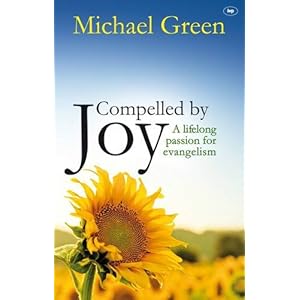I wonder if we have any fools here tonight? In Belfast every summer, there is a Festival of Fools. You can be innocently going about your shopping when you’re suddenly confronted with a variety of street performers and entertainers doing all kinds of daft things. People on unicycles; jugglers; dancers; and clowns. They’re being foolish for a laugh.
Or maybe you know someone who you think is a bit foolish. It might be their obsession with Daniel O’Donnell, or the way they leave the house and forget to close the door, or whatever. You look at them and think, well, they’re a bit of a fool.
But what if you yourself are called a fool - not just by one of your neighbours for some silly behaviour - but by God himself? In our Bible reading, we hear of a man who is called a fool by God. As we look more closely at the parable, we’ll see just why he was so foolish, and how we can avoid being fools.
Jesus begins to tell a parable, a story, about a certain rich man. It’s harvest time, and he’s been busy in the fields gathering it all in. Things have been good this year - just enough rain to keep the crop watered, but not too much to flood it; good heat to bring it on; all is well. Yet in his prosperity, he discovers he has a problem.
You see, his land has produced so much, that his barns simply aren’t big enough. He has no room for all his grain and his goods. So as he thinks about his problem, suddenly he comes up with the answer. Verse 18: ‘Then he said, ‘This is what I’ll do. I will tear down my barns and build bigger ones, and there I will store all my grain and my goods. And I’ll say to myself, ‘You have plenty of good things laid up for many years. Take life easy; eat, drink and be merry.’
Now you might be thinking - doesn’t that sound great? One crop big enough to retire on. A big bonus, and no more worrying about anything. Not so long ago in one of the newspapers I read of a mega-rich family in England holding a retirement party for the latest person to retire from the family business - the the age of 30!
It’s the dream most of us pursue, isn’t it? No more working, just lying back on a tropical beach topping up your tan as the world goes by. It was what drove the boom years as property prices soared, everyone out to make their millions; it’s still the dream in these bust years as people hang on until they can make their fortune again.
Take life easy; eat, drink and be merry. Isn’t that what life is all about? Having a good time, enjoying your wealth.
So you can imagine the farmer has made his plans, he’s going to get rid of those tiny barns and have bigger ones built. He goes and rings the builder - the builder even says he’s coming first thing in the morning! What more could he possibly want?
The truth is he will never see the builder coming. Despite his wealth, his riches, his prosperity, those things couldn’t save him. That very night he dies - and never benefits from all that he had stored up. But it wasn’t an accidental death; not just a tragic coincidence; not just a a twist of fate. No, God intervenes and says to him: ‘You fool! This very night your life will be demanded from you. Then who will get what you have prepared for yourself?’
After all his plans for the rest of his life, he would see none of them, because God took him that night. His possessions were useless to him.
It’s not what we think, is it? That’s not how we view stuff. We naturally think that we need stuff, more and more stuff - the latest iPhone; a bigger house; the newest model car; wardrobes full of clothes never worn. We push on to get the latest and the best, more and more, even though our houses are probably coming down with stuff. As someone once remarked about our society: ‘The one with the most toys wins.’ I heard someone ask how much money you need to be happy. ‘Just a little bit more.’
As you might know, we have recently moved house. One morning, the removals lorry arrived, and a team of workers invaded our house in Dundonald, packed up everything we had, and loaded it all in the back of the articulated lorry. I caught myself saying that it was weird to see our whole life in the back of a lorry. And then caught myself on - remembering Jesus’ words here that ‘a man’s life does not consist in the abundance of his possessions.’
How easily it is to measure ourselves or someone else based on what they own - where they live and what they drive. If we see someone with what we think as ‘less’ than ours, we imagine we’re better than them. But what if we see someone with more, or better than us? That old problem of greed can quickly raise its head.
This was why Jesus told the parable in the first place - a man in the crowd asked Jesus to tell his brother to divide the inheritance with him. It might have been a fair question, but Jesus sees right to the heart and knows that greed is motivating him. ‘Watch out! Be on your guard against all kinds of greed; a man’s life does not consist in the abundance of his possessions.’
It’s what the man in the story thought - he had plenty of possessions and so could have an easy life. Being rich meant he could be happy. Have you ever heard yourself think that? Happiness would come if I had a little bit more. There are many who pursue happiness in a drum of wee balls being drawn out on a Saturday night, throwing away money seeking happiness from a big lottery win.
Jesus is saying here that greed for riches isn’t very wise; rather God think it all rather foolish. Remember what he said to the man: ‘You fool!’ And why was he foolish?
He didn’t think of God. The ground had produced a bumper crop, but the man forgot God the giver. You see, all that we have comes from God. He made it, and he gives us everything for us to use. Yet how many of us realise and remember to thank God? We might remember about it this evening as we come to the Harvest Thanksgiving, but what about the rest of the year? Are we mindful of how God has blessed us? We would always make sure to thank someone who gives us a birthday present or does something for us - what about God, who gives us everything?
He didn’t think of God, who gives us life. The man says to himself ‘You have plenty of good things laid up for many years’ yet he himself didn’t have many years. He forgot that God is in control of the future. As James writes in his letter: ‘‘Come now, you who say, “Today or tomorrow we will go into such and such a town and spend a year there and trade and make a profit” – yet you do not know what tomorrow will bring. What is your life? For you are a mist that appears for a little time and then vanishes. Instead you ought to say, “If the Lord wills, we will live and do this or that.”’ (James 4:13-15). Are we foolish to make plans that we may not be able to keep? Are we too sure of the future when we don’t know what tomorrow (or tonight) will hold?
The man also forgot about God, who sits on the judgement seat. His wealth mattered little before God - he may have been wealthy, and yet, as Jesus says, he was not rich toward God. Millions of pounds in the bank, and yet bankrupt before God.
Not only did the man fail to love God with all his heart, mind, soul and strength (and his purse and possessions), but we find that he even failed to love his neighbour as himself. Do you remember what the man said when he came up against his problem? ‘What shall I do? I have no place to store my crops. This is what I’ll do. I will tear down my barns and build bigger ones, and there I will store all my grain and my goods...’
He has no regard for his neighbour; no thought for those who have nothing; doesn’t consider sharing or giving away even the bit that wouldn’t fit in his barn. Everything is kept for self.
And what of us? Are we selfish in storing up what we have for ourselves? Or do we remember those in need, remembering that what he have has been given to us by God, for his purposes, rather than our own private pursuits.
Now you might be thinking to yourself - I have no bumper crop; compared to some of those around me, I’m poor. Maybe the sermon is only for the richest person in the congregation and the rest of us are off the hook. But in the grand scheme of things; when we look at the world, we are the rich! We are those with plenty, yet we keep all for ourselves and our comfort and pleasure.
Because of that, all of us are in danger of being called a fool by God. As Jesus says in the last verse: ‘This is how it will be with anyone who stores up things for himself but is not rich towards God.’ Just like the man, we can be rich, and yet not rich towards God. But how do we stop being foolish? How do we become rich towards God?
The truth is that each one of us is bankrupt towards God. We have no credit, no merit, nothing going in our favour. Instead, there’s a big (and ever increasing) list of debts. Every sin has been listed. Our debt is growing. We could never repay it.
Yet the Lord Jesus Christ came to earth, lived the perfect life, committed no sin, and then gave his life to pay for our sins. As Jesus died on the cross, he satisfied the debt of our sins - as we read in Colossians 2: ‘He forgave us all our sins, having cancelled the written code, with its regulations, that was against us and that stood opposed to us; he took it away, nailing it to the cross.’ (Col 2:13-14).
Paul is saying that it’s a bit like going into a shop with a bill. When you pay the bill, it’s taken, and placed on the nail. It’s been paid for, the debt is cancelled. It’s the same with our sins. Jesus has cancelled our debt towards God through his perfect sacrifice for our sins, which is credited to our account when we trust in him.
There’s an old gospel chorus which puts it so well: He paid a debt he did not owe, I owed a debt I could not pay, I needed someone to wash my sins away. And now I sing a brand new song, Amazing Grace the whole day long, for Jesus paid the debt that I could never pay.
But even more than just our debts being cleared; the Lord Jesus also gives us his blessings, he credits our account, and gives us so much more than we deserve. Paul tells us in Ephesians that all these blessings from ‘the riches of his grace, which he lavished upon us’ (Eph 1:7-8). Later they are described as the ‘immeasurable riches of the grace’ (Eph 2:7) and the ‘unsearchable riches of Christ’ (Eph 3:8). By ourselves, we cannot store up treasure in heaven – we are poor and bankrupt when it comes to the Bank of Heaven. But Jesus offers us the riches of his grace, and provides the means for us to have treasure in heaven.
Perhaps this evening you are realising your poverty towards God - I invite you to receive the Lord Jesus, to depend on him for rescue from your debt. In him, you will find all the riches of his grace.
Perhaps you are a Christian, but you’ve been pursuing wealth on earth rather than storing up treasure in heaven. That’s like depending on Monopoly money for your fortune. Turn again and find in Christ all that you need.
And please, as you leave this church tonight, don’t be a fool.
This sermon was preached at the Harvest Thanksgiving in St Margaret's Church, Clabby, County Fermanagh on Friday 23rd September 2011.






